With the inexorable disintegration of the traditional Indian joint family, especially in urban India, and rapid multiplication of nuclear households in which both parents go to work, male parents are increasingly beginning — American style — to share parenting duties and household chores – Mini P. & Cynthia John
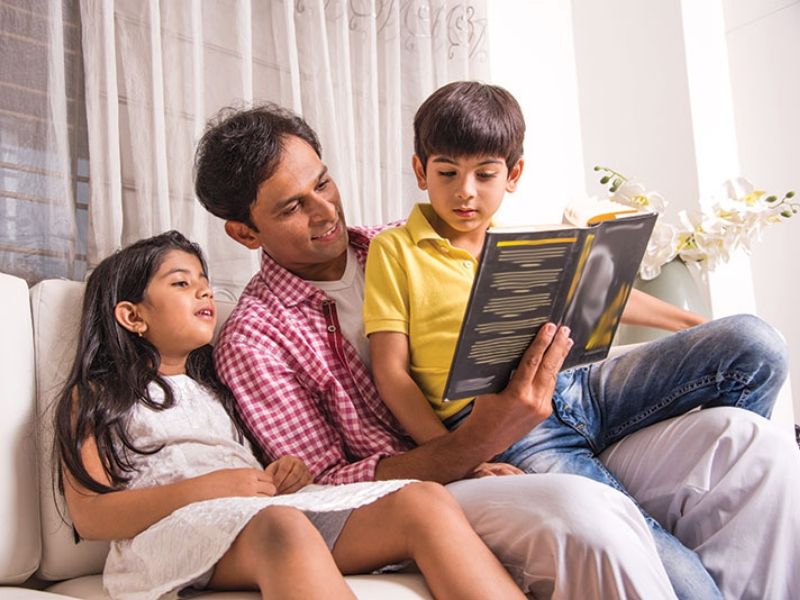
Mother’s Day (May 12) is a big ticket annual event around the world and increasingly in urban metro India. Malls, restaurants and online websites offer large discounts and newspapers feature special stories highlighting the mother-child bond.
However, similar enthusiasm is conspicuously lacking for Father’s Day (June 16). In popular folklore, literature, public imagination and reality, mothers are perceived to be primary care-givers who play the lead role of nurturing children through early childhood, adolescence into adulthood. On the other hand, in the popular imagination — especially in India — the male parent is a stern patriarch, protector and provider who doesn’t get his hands dirty with nappy-changing, school drops, laundry, cooking and other “women’s work”.
But in the new me-too, equal pay for equal work and women’s emancipation age, stereotypical gender roles are changing, even if gradually. With the inexorable disintegration of the traditional Indian joint family, especially in urban India and rapid multiplication of nuclear households in which both parents go to work, male parents are increasingly beginning — American style — to share parenting duties and household chores. In the interest of fair play and gender equity, a small but growing minority of men are changing the parenting narrative and evolving into hands-on work-sharing fathers. This new tribe of hands-on fathers known as ‘penguin dads’ — after the male emperor penguin who protects and cares for the family eggs for two months after the mother leaves post-delivery to feed in the ocean (see box p.12) — are deeply involved and invested in child-rearing and work-sharing in nuclear households.
A 2018 survey by e-retail giant Flipkart, which interviewed a sample group of 1,700 male parents in 17 cities countrywide, found that a rising number of men are upending stereotypes by becoming heavily involved in child rearing duties — “a revolutionary change sweeping Indian society”. The survey reports that 50 percent of the respondents wouldn’t mind being stay-at-home dads and 85 percent said they participated in their child’s daily routine activities including helping with school homework and other child care duties. Moreover, 58 percent of fathers interviewed have become more health conscious role models with 27 percent quitting cigarettes and 22 percent foreswearing alcohol after birth of their children.
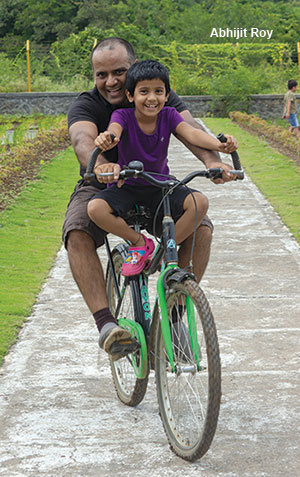 Pune-based Abhijit Roy, father of Aarohi (8) and Jay (2), and a freelance visual effects artist and animator, represents the new tribe of penguin dads. In 2010, he quit his full-time job to bond with daughter Aarohi. “There’s no shortage of research studies which indicate that the best parent-child bonds are established in the first three years. And I didn’t think it was fair this bond should be the exclusive preserve of mother and child. Therefore, I also quit my job to become a stay-home dad. Although this meant a lifestyle change, liquidation of some assets and move to a smaller house, I have never regretted this decision. I did some freelance assignments and have been homeschooling her. We plan to do the same with our two-year-old-son. The joy of being a full-time father is worth it,” says Roy.
Pune-based Abhijit Roy, father of Aarohi (8) and Jay (2), and a freelance visual effects artist and animator, represents the new tribe of penguin dads. In 2010, he quit his full-time job to bond with daughter Aarohi. “There’s no shortage of research studies which indicate that the best parent-child bonds are established in the first three years. And I didn’t think it was fair this bond should be the exclusive preserve of mother and child. Therefore, I also quit my job to become a stay-home dad. Although this meant a lifestyle change, liquidation of some assets and move to a smaller house, I have never regretted this decision. I did some freelance assignments and have been homeschooling her. We plan to do the same with our two-year-old-son. The joy of being a full-time father is worth it,” says Roy.
Yet while Roy’s total parental dedication is exceptional, there are other male parents who make the extra effort to relieve their wives of bearing the entire child-rearing burden. A case in point is Sharath Kogila, Bangalore-based product manager with the IT behemoth Dell India, recently voted India’s most trusted brand. “The role of father is as important as the mother’s. I believe I have a lot to teach my nine-year-old daughter, Shifa. A father provides a child a different perspective of life and the world. Therefore, I choose to get back home by 4.30 p.m so I can take my daughter to co-curricular and sports classes. Or when my wife Nilanjana has a long working day, I avail work-from-home option. If fathers don’t make time for their children, they lose the chance to shape and mould their personalities,” says Kogila.
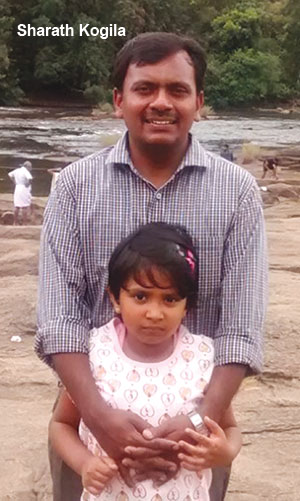 A plethora of research studies seem to support this line of thinking. A loving, supportive, and involved father can contribute greatly to a child’s cognitive and social development, as well as academic achievement, says William Jeynes, a professor at California State University, USA. After conducting a meta-analysis of 34 research studies, Jeynes found that “while mothers often tested as being more nurturing in their relationship with children, fathers tend to be better equipped to shape children’s life skills. Fathers also make realistic assessments of their children’s capabilities than mothers”. “Fathers’ ratings are also better predictors of children’s future cognitive performance than the ratings of mothers,” he says.
A plethora of research studies seem to support this line of thinking. A loving, supportive, and involved father can contribute greatly to a child’s cognitive and social development, as well as academic achievement, says William Jeynes, a professor at California State University, USA. After conducting a meta-analysis of 34 research studies, Jeynes found that “while mothers often tested as being more nurturing in their relationship with children, fathers tend to be better equipped to shape children’s life skills. Fathers also make realistic assessments of their children’s capabilities than mothers”. “Fathers’ ratings are also better predictors of children’s future cognitive performance than the ratings of mothers,” he says.
Jeynes conclusions are supported by parenting expert Dr. Kyle Pruett, professor of child psychiatry at Yale University, USA. Pruett’s research indicates that male parents have a distinctive style of communication and interaction with children. Such male-female parenting diversity gives children the understanding that men and women are different and deal with life differently. Therefore children grow up with a deeper, richer experience and understanding of both sexes, explains Pruett.
According to Pruett, the male parent’s child nurturance style is unique in five identifiable ways; they play more physical games; they provide children a different problem-solving view of the world; their style of disciplining is based on fair play and respect for rules; they model behaviour towards women and families, and they communicate differently, broadening the linguistic and logical thinking skills of children.
 With rising global awareness about the formative and significant role male parents play in children’s lives, in several Western countries governments and private companies are mandating paternity leave to enable father-child bonding from birth. For instance in Sweden, fathers of newborns are entitled to 480 days paternity leave. But in the majority of countries, the scales are tilted against male parents.
With rising global awareness about the formative and significant role male parents play in children’s lives, in several Western countries governments and private companies are mandating paternity leave to enable father-child bonding from birth. For instance in Sweden, fathers of newborns are entitled to 480 days paternity leave. But in the majority of countries, the scales are tilted against male parents.
A recent Unicef analysis reveals that India is among 90 countries in the world without national policies that ensure male parents of newborns get adequate paid leave. In India, only Central government employees are allowed 15 days of paternity leave (cf. 26 weeks for women). In 2017, a private member’s bill — The Paternity Benefit Bill, 2017 — was introduced in Parliament by Congress MP Rajeev Satav proposing paternity leave of up to three months for male parents of newly-born children. However, the Bill didn’t receive sufficient support to be tabled for discussion.
Undoubtedly, government and corporate help in creating an ecosystem which facilitates father-child bonding in infancy will encourage male parents to become involved with their children’s lives in the early years. The small but growing tribe of penguin dads in India, who are changing the image of male parents from detached patriarchs to determined caregivers, needs to be encouraged to help develop happy, confident and well-balanced children.
Animals lead the way
The world of nature provides inspiration for males of the human kingdom. For instance, the male seahorse is unique because he bears the burden of pregnancy. They have a pouch where females deposit their eggs. Once deposited, the male fertilizes the eggs and incubates them for a period of up to 45 days.
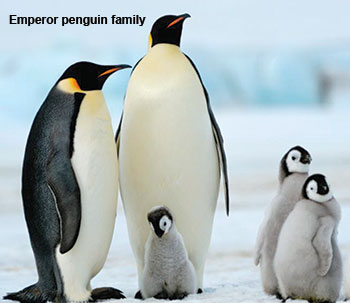 Male frogs and toads also make great fathers. They carry tadpoles in their mouths, often refusing to eat until they are old enough to survive on their own. Male jacana birds go the extra mile by building nests, incubating eggs and caring for newborn chicks. And despite their predatory reputation, male wolves are fiercely protective parents.
Male frogs and toads also make great fathers. They carry tadpoles in their mouths, often refusing to eat until they are old enough to survive on their own. Male jacana birds go the extra mile by building nests, incubating eggs and caring for newborn chicks. And despite their predatory reputation, male wolves are fiercely protective parents.
But there are few examples in nature of dedicated male parents than the emperor penguin (the tallest and heaviest of all living penguin species and endemic to Antarctica). After the female lays the egg, her nutritional reserves become depleted and she must return to feed in the ocean for two months.
This devolves the responsibility of keeping newly-laid eggs warm through the freezing Antarctic winter upon the male. The dedicated male parent spends the two months holding the egg precariously between his feet and brooding pouch, without feeding, through the brutal winter (when freezing wind speeds often reach 120 mph). If he moves too suddenly or the egg becomes exposed to the freezing temperature and the egg will perish. But his dedication — and balance — ensures the survival of a new generation.
Are you a penguin dad?
Male parents who participate actively in child-rearing duties including changing diapers, calming infants and helping out with household chores are ‘penguin dads’.
Take this quiz to see if you qualify as a penguin dad:
Where do you love to be the most?
a. at home with family
b. party, with friends
c. work, finishing my project late night
d. gym
How much of the responsibility do you shoulder when it comes to nurturing your children?
a. most of it, or all of it
b. a small part of it
c. hardly anything
d. nothing at all, it’s the mother’s job
What is your child’s favourite food?
a. of course I know
b. give me a minute, let me think
c. not sure
d. I’ve never fed her
Do you consider yourself your child’s friend?
a. Yes
b. not really
c. I am a father not friend
d. I haven’t thought about it
Given an option, would you work from home to spend more time with your child?
a. yes, 100 percent
b. sometimes
c. I would worry that I won’t get enough work done
d. never
Do you help get the children ready for school?
a. yes, always
b. sometimes
c. rarely
d. never
What is your idea of an enjoyable day?
a. a family outing
b. work party
c. physical activity
d. time away from everything
Answer key
All a’s — You are a dedicated father and qualify as a penguin dad
Mostly b — You are promising but need to prioritise fatherhood
Mostly c — You need to re-evaluate your priorities. Work, friends and leisure are keeping you away from your children perhaps?
Mostly d — You need to re-evaluate your priorities, and become more involved with your children.
Single dads
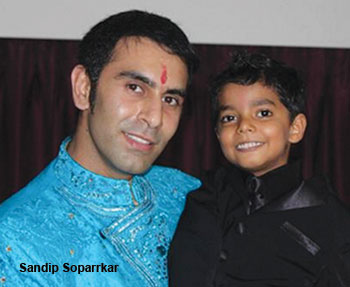 In 2007, Mumbai-based dance teacher/choreographer Sandip Soparrkar became the first unmarried male in India to formally adopt a child. This paved the way for more unmarried Indian men to enjoy the joys of parenthood.
In 2007, Mumbai-based dance teacher/choreographer Sandip Soparrkar became the first unmarried male in India to formally adopt a child. This paved the way for more unmarried Indian men to enjoy the joys of parenthood.
Software engineer Aditya Tiwari (27) fought many legal battles to become India’s youngest single parent when he adopted a special needs child. On January 1, 2016, a court accepted his petition and allowed him to legally adopt Binny, diagnosed with Down’s Syndrome. Recently, Bollywood film producer Karan Johar became a single parent through surrogacy.
The Hindu epic Mahabharata cites several examples of unmarried male parents. The legendary beauty, Shakuntala, was conceived when her mother enchanted and seduced the great sage Vishwamitra. But, she abandoned the child. Vishwamitra refused to accept the child. A sage named Kanva chanced upon this abandoned child and adopted her as his own. Thus, Kanva became a single father of an adopted child. Several examples of single fathers exist in Hindu mythology, including Drona’s father Rishi Bharadwaja and Gorakshnath’s father Yogi Gorakhnath.
Also read:























